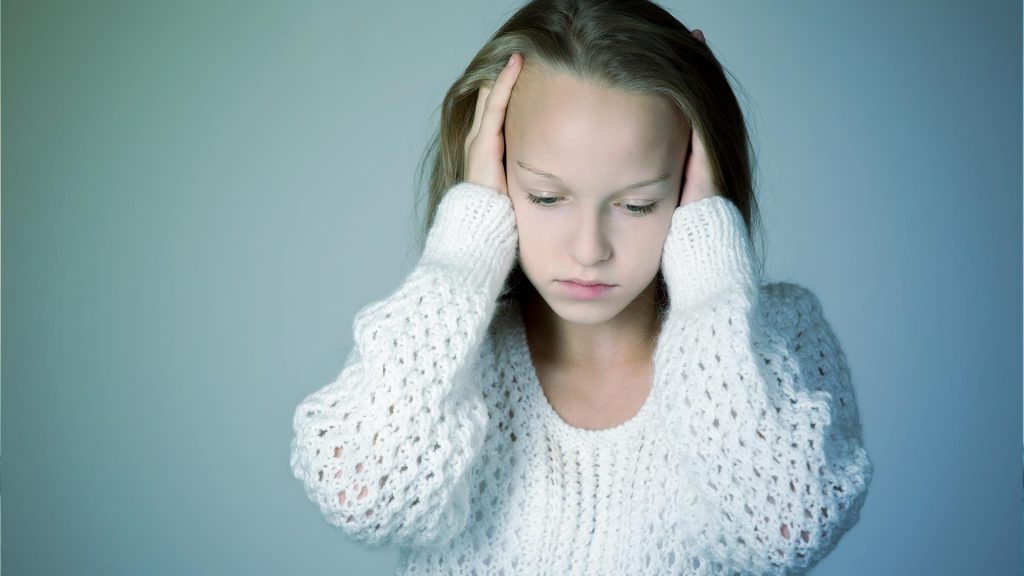Teen anxiety explained: How to identify it and what to do
Parents of teens need to know what ‘normal’ teen anxiety is and what causes it. Parents also need to know the signs of anxiety problems and anxiety disorders. This will help you know when to get help.

Normal anxiety in teenagers
Fear and worry are a normal part of life as a teen. Teenagers may get stressed from:
- school or study problems
- conflict with friends
- lack of sleep
- big life events or changes
- having too much to do
It’s important that parents respond to these stressors in a measured way. Treating every worry as a major issue could result in your teen seeing the world as unsafe and dangerous.
But dismissing your teen’s worries could mean you miss issues that could need professional help.
Anxiety can look different for each person. Keep a lookout for these signs of stress:
- Behavioural signs of stress like avoidance (of school or activities), sleeping too little or too much, and an increased or decreased appetite. Sometimes teens can become aggressive when they feel stressed.
- Emotional signs of stress like unexplained mood swings, crying and feelings that ‘everything is going wrong’
- Physical signs of stress such as headaches, neck and shoulder tension, nausea or clenching the jaw. Other physical signs could include more frequent infections (e.g. colds), weight gain or loss, or period changes for women.
- Cognitive signs of stress including trouble thinking or concentrating. Your teen may also have poor decision making or planning or memory problems.
Normal feelings of anxiety usually pass after a short period – a few hours to a day. If you notice these behaviours persist for longer the two weeks, seek help from a medical professional.
You can support your teen by:
- Encouraging a healthy lifestyle by promoting exercise, healthy food and good sleep patterns
- Helping them deal with their stressful situations (like homework issues, relationship problems or questions about sexual identity)
- Showing them how to reduce stress levels through mindfulness, meditation or another relaxing activity
When to seek help: anxiety disorders and problems explained
Discerning the difference between ‘normal’ teen anxiety and anxiety disorders can be difficult. So consider getting professional help as soon as you think your teen could have an anxiety problem.
Kinds of anxiety problems that affect teenagers
As for adults, there are different types of anxiety problems that affect teens, for example:
- Social anxiety or phobia could be the problem if your teen avoids everyday social situations because of fear. For example, they may be intensely afraid of speaking in public, eating in public, being assertive or making small talk.
- Generalised anxiety disorder may be what’s causing your teen to have chronic feelings of worry, tension or fear. These feelings don’t match the experiences and challenges your teen is facing.
- Panic disorder is the problem behind what we call ‘panic attacks’. These are sudden, intense and overwhelming feelings of anxiety. Shortness of breath, dizziness, chest pain and sweating are some of the physical signs of a panic attack.
- Agoraphobia is when your teen is fearful of situations where escape might be difficult
- Phobias are fears of a specific object, situation or experience. Your teen could have a phobia if they often go to great lengths to avoid the object they fear. Common phobias include heights, spiders or dogs.
- Separation anxiety is not just experienced by babies and young children. A teen who has separation anxiety may have excessive fear of being away from home or a loved one.

Signs and symptoms of anxiety disorders in teenagers
If you notice anxious behaviours persisting for more than two weeks, you should speak to a doctor to find out the right treatment for your teenager. Watch for these signs:
- Your teen is on-edge or uptight most of the time. They seem worried about a lot of things or have trouble relaxing.
- Your teen has signs of stress that get worse over time. For instance, they avoid school, activities, and friends. Or they have physical symptoms of panic such as sweating, fast heartbeat, rapid breathing, or gut problems.
- Your teen’s fear and anxieties interfere with daily life. They may stop being able to do things that they used to or enjoy.
By talking to a health professional — and getting the right treatment early — your teen can avoid long-term mental and developmental consequences of untreated anxiety disorders.
If you think your teen may have an anxiety disorder, or need help managing their problem, our doctors are here to help you. You can request a telehealth consultation with one of our Australian-registered doctors from anywhere in Australia, seven days a week.
Our Telehealth consultations are 100% confidential. So you can get the professional, private and discrete mental health support you need for your teen’s anxiety.
To speak with an InstantScripts Doctor:
Request a ConsultationIf you have run out of your script:
Request a ScriptOther support for anxiety in teens
There are lots of organisations that offer free mental health support for youth, including:
- Kids Helpline 1800 55 1800 www.kidshelpline.com.au
- Lifeline 13 11 14 – 24 hours a day, 7 days a week
- Beyond Blue – 1300 22 4636 – www.beyondblue.org.au
There’s also a variety of high-quality digital (e-therapy) support programs online.
- ReachOut.com’s ReachOut Worry Time App can help to control everyday worries and anxieties
- The Brave Program for Teenagers provides teenagers with information and skills to help cope with worries and anxiety
- A growing suite of digital mental health (e-therapy) programs can be found at Head to Health
© InstantScripts
Level 8 / 637 Flinders St.,
Docklands VIC 3008

